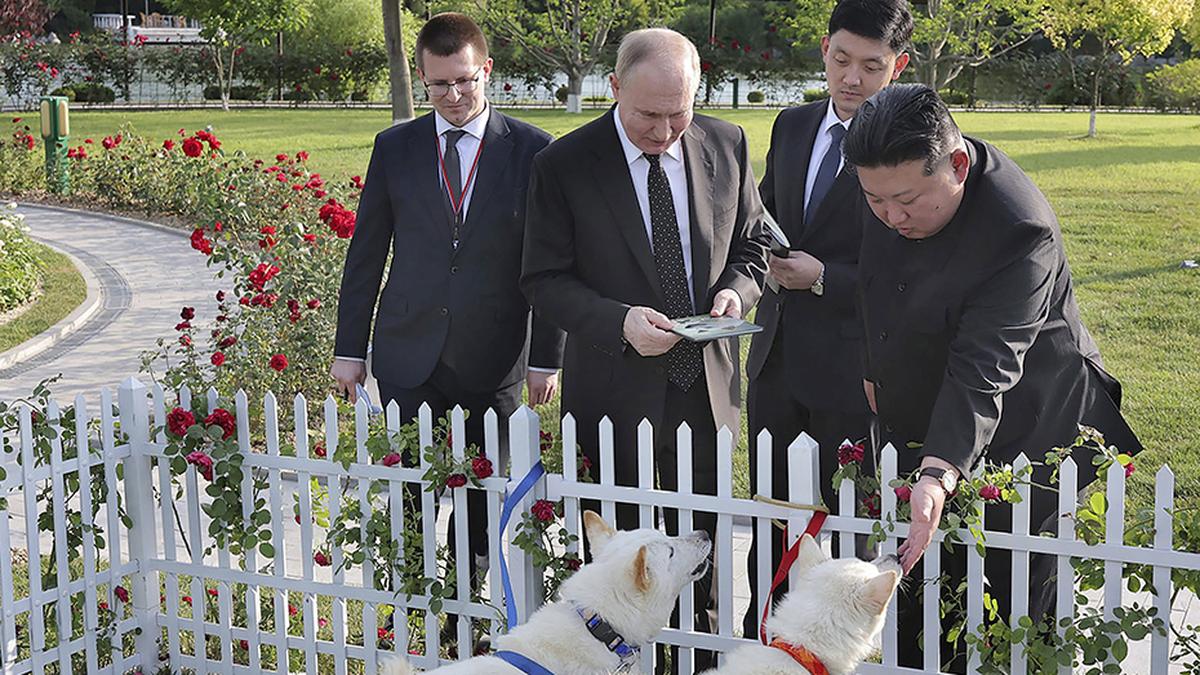
What’s behind the Russia-North Korea security pact? | Explained Premium
The Hindu
Russia-North Korea security pact: U.S., as a common adversary, brings Russia and North Korea together as both countries attempt to create a shift in global power away from the West, with China on their side.
The story so far: Russian President Vladimir Putin signed a “comprehensive strategic” partnership deal with North Korea’s leader Kim Jong-un in Pyongyang on Wednesday as the two countries sought to deepen their security ties in a bid to challenge the West-dominated world order.
Mr. Putin was on a two-day visit to North Korea – his first in 24 years – and signed the deal that has been hailed as the “strongest between Moscow and Pyongyang since the end of the Cold War” by experts. Kim Jong-un has called it a ‘breakthrough” pact.
Also Read:Kim Jong Un was ‘sincere’ in denuclearisation talks: former South Korea president
Ties between Pyongyang and Moscow go back to the Soviet times. The Soviet Union was the first nation to recognise North Korea, or the Democratic People’s Republic of Korea (DPRK), when it came into existence in 1948 under Kim Jong-un’s grandfather, Kim Il-sung. Moscow supported DPRK in the 1950-53 Korean War while the U.S. supported the Republic of Korea (ROK), or South Korea. In a previously classified letter, which is now available in Wilson Centre’s digital archives, Kim Il-sung thanked Soviet leader Joseph Stalin for his “invaluable assistance” to DPRK’s “struggle for independence.”
Stalin’s support for DPRK in the Korean War, however, also benefited the leader’s larger ambition to push back the U.S. in the Cold War, which was evident from another “top secret” letter he wrote under the codename “Fillipov” in 1950. “One might ask why we have now returned to the Security Council. We have returned to continue exposing the aggressive policy of the American government and to prevent it from using the flag of the Security Council as a smokescreen for its aggression. Now that America has become aggressively involved in Korea, it will be very easy to achieve this goal while in the Security Council. I think that this is clear and needs no further explanation,” Stalin said in a letter to the Soviet ambassador in Prague.
Also Read: Russia and North Korea sign partnership deal, vowing closer ties as rivalry deepens with West
Initially robust, relations between the countries declined as the rift between China and Russia grew after the Korean War ended. The Soviet Union also established diplomatic relations with ROK, further isolating DPRK in the region. Russia, which succeeded the Soviet Union, continued these diplomatic relations.











